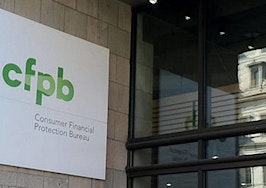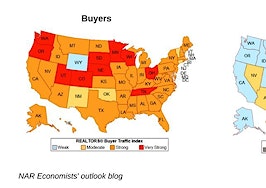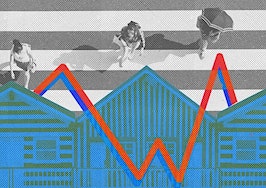- In August, British Columbia implemented a 15-percent sales tax on foreign buyers of real estate; the move immediately dampened the high-end market, but demand for mid-tier and lower-tier homes remained high.
- Now, Toronto is also implementing a 15-percent foreign buyer tax, and a petition is circulating in Seattle to do the same.
In August 2016, anyone from a country other than Canada who was closing on a house in Vancouver (or elsewhere in British Columbia) was slapped with significant sticker shock when the government unveiled a 15-percent tax on real estate sales to foreign buyers.
Like foreign investors in any area, many of those sales were for high-end properties, and according to Elton Ash, the regional director of Re/Max of Western Canada — who’s based in Vancouver — “the effect was that the market died immediately. It just fell off the ends of the earth. We went from a multiple-offer situation to zero within a weekend.”
Now, Ontario has announced a similar measure, which will affect Toronto, a city said to have absorbed some of the Vancouver overflow since August (and the resulting skyrocketing prices, too).
Will Toronto see similar effects to Vancouver’s — and what does this mean for real estate agents in the United States, where price growth is also frustrating buyers?
Vancouver’s tax and its effects
The tax was announced on Monday, July 25, after a period of what Ash called “rampant investment” from Chinese buyers in particular.
Ash also noted that it didn’t retroactively excuse deals that had already been written. “So if I as a foreigner — whether that’s American, Chinese or Swiss — wrote an offer on a house with a closing of August 3, I was subject to that tax even though back in March when I wrote the offer, I could have written it to close on July 15.
“I’d have to cough up 15 percent all of a sudden — and if I’m buying a $3 million property, which isn’t any stretch in Vancouver, that’s hugely punitive,” he added. “We saw some deals collapse.”
“The foreigners who were buying are typically very wealthy, but 15 percent is a significant sum when one thinks about it,” said Lawrence Yun, the chief economist at the National Association of Realtors. “It’s not surprising that luxury demand in Vancouver has dried off.”
A market report just released by Re/Max helps showcase how demand has shifted in Vancouver and Toronto.
The report calls Vancouver a “balanced” market right now — the average residential sales price has actually declined 11 percentage points year-over-year, from $1,094,936 to $969,900.
By contrast, Toronto is firmly in seller’s market territory, with year-over-year price increases close to 30 percent — yikes!
“Our guess is that at the most, 5 percent of the real estate market was being driven by foreign investment” at the time the tax was implemented, Ash said — but he added that foreign investment “is not tracked by any demographic means,” so everyone’s guess was just that.
Although the high-end market was immediately dampened, mid-tier and lower-tier homes in Vancouver didn’t see much change, Ash said.
“Foreign buyers typically aren’t interested in a $450,000 condo,” Ash explained. “They’re typically buying luxury homes. So although we saw prices drop 11 percent as of the end of March this year, that was most affected by the luxury home market not selling. Our demand in the low end — $450,000 to $750,000 range — remains pretty strong.
“Consumer confidence is pretty strong, interest rates are at record low levels, and the provincial government also put in a first-time homebuyer’s program where they’ll match up to 5 percent of the purchase price of first-time buyer down payments for the first five years,” he added.
And now that the foreign buyer’s tax is relatively old news, luxury real estate in Vancouver has “slowly recovered,” Ash said.
“We predicted that the desire to get money out of China is so strong that once they got used to it, they would talk it up as a cost to do business.”
Now, he says, that prediction is showing signs of coming true. “We’re seeing interest come back as we thought would occur; demand is increasing,” Ash said. “Inventory levels are now at record lows, and we’re now returning to multiple-offer situations and price increases.”
South to Seattle
So where did all of that foreign interest in Vancouver real estate migrate?
To Seattle, according to data on home searches originating from China.
“That interest moved to a big extent straight south to Seattle,” confirmed Ash.
Matthew Gardner, the chief economist at Windermere, said that search data likely showed a spike in interest, but questioned whether that had “flowed through to a substantial number of transactions — I think the jury’s still out in that respect.” Zillow published some research in March that indicated that the Vancouver tax “has not moved the needle much,” too.
“There is a petition out there for Seattle to consider” a similar 15-percent foreign buyer tax, Gardner noted, but he added that “it hasn’t raised enough interest to move forward.”
Plus, any city or county in Washington that would like to levy a foreign buyer tax must get the tax approved by the state. “That is unlikely and would certainly go to court if they tried,” said Gardner.
“Additionally, the equal-protection clause of the Fourteenth Amendment would make such a tax tenuous as foreigners legally in the U.S. are protected.”
That’s part of the draw, according to Yun. “The U.S. has been fairly open to say that whether one is a domestic or foreign consumer, their property rights will be respected, and given that attraction, going well into the future, as the economy continues to grow, the foreign demand for U.S. or Canadian real estate will continue to be strong,” he said.
Another recipient of the unexpected bounty of foreign buyers fleeing Vancouver’s tax is Toronto — which is now implementing a tax of its own.
Taxing Toronto
Pamela Alexander, CEO of Re/Max Integra in Ontario, said that the dilemma that Toronto is facing is a big influx of foreign buyers in the past three or four years — “and we don’t know if that’s positive or negative because no one has kept records,” she noted, echoing Ash’s concerns in Vancouver.
But despite a lack of records, “it’s a huge market shift,” she said, citing the changes in the types of names typically seen on sales purchase deeds and noting that “we really don’t know how big a role foreign investors who don’t live here are playing in the real estate market.”
Still, she thinks that the 15-percent tax will, at least, “pause the market a little bit. Any shock to the market will bring a little bit of a slowdown.”
And that probably isn’t a bad thing in Toronto right now, she added — which has not traditionally seen as much foreign interest as Vancouver.
“Everything’s gone multiple-offer and way over list price,” she explained. “Purchasers are so frustrated. There are end users who need a bigger home for their family or who need to move because their job has changed, and after you lost out five, six, seven, eight times, people are just … plus add in major double-digit price increases. It’s just not healthy.
“I think with this tax, the frenzy and the froth will come off the top, and that’s not a bad thing,” she said. “I’ve been in this business 40 years, and these kinds of price increases can’t have a great ending if they aren’t checked at some point.
“The plan isn’t perfect; there are a few things that concern us long-term, but I think they’re just trying to have a fair market for everyone. What community shouldn’t be concerned about its residents first?” Alexander added.
Those concerns include proposed rent controls, which Alexander worries could curtail a specific segment of the market — individual investment owners buying condos to rent out.
“The industry would be OK if the rent control ceiling were a little different and if it factored in making a fair profit, but this doesn’t,” she said. “Although it will protect renters, I think we’re going to see quite possibly a large number of individual investment owners say, ‘You know what, I made my money in the last five to 10 years; it had a nice appreciation, and I don’t necessarily want to continue being in this investment area if I’m going to be in negative cash flow.’”
Of course, more units for sale are just what the city needs right now. “We may see more product over the next year come onto the market” as a result, Alexander allowed. “We don’t like the caps, but it can always have a positive effect, as well.”
Whether listing an owner-occupied or an investment property, this is going to mean that agents in Toronto must “re-educate sellers,” said Alexander.
“These moves may have a cooling effect, so sellers should know that they need to look seriously at the two or three offers that come in — and maybe there’s only going to be a couple, and maybe they will take a week to come in,” she said. “And purchasers will have to understand that they’re not the only ones in the market, and they can’t offer 5 percent or 10 percent less just because that’s what happened in Vancouver.
“It’s time for good agents to step up and do their jobs,” she added.
Does dampening demand fix affordability?
Affordability is a function of supply and demand — so to make something more affordable, you should either increase the supply or decrease the demand.
Imposing a tax on foreign buyers decreases demand, at least for a time. But is it the best way to tackle the problem of skyrocketing home prices?
“You can’t control the market by trying to retard buyer demand,” said Ash. “That doesn’t work. Ultimately when it comes to this type of situation, you have to look at the supply side, and that is a much more complex problem.”
He said that there are 66,000 development permits right now sitting at City Hall in Vancouver. “They’re just sitting there because City Hall doesn’t have the manpower to deal with these applications expediently; they’ve got all kinds of bureaucratic regulation to get through, and so that’s one of the problems with dealing with supply,” he said.
And trying to get local, state (or provincial) and federal governments to work in concert is tough, but that’s what needs to happen, he added.
“The foreign buyer tax is one way to increase the burden on pure real estate investment,” said Tom Davidoff, associate professor of strategy and business economics at the University of British Columbia’s Sauder School of Business. “But it is not direct enough for my tastes, and relies on tagging nationality, which I find vaguely distasteful.
“A better approach is the BC Housing Affordability Fund that I along with many colleagues favored,” he added. “Raise property taxes, but create exemptions for income tax paid or rental income declared to tax authorities.”
“There’s a big demand issue in the greater Toronto area,” said Alexander. “There is probably not enough housing available for the influx of people into the cities. Immigrants come to Canada; they’re quite skilled; they usually have some money to get into the market and they’re very motivated to do that — so we have a huge product issue, and until that changes, we really aren’t going to see changes in affordability.”
“My biggest concern is housing affordability” said Gardner. “The trouble is, in many markets, you have certain land constraints. We have way too many mountains and way too much water” in Seattle, for example.
Seattle has tackled the issue to some extent by providing incentives to developers — they can build higher and put more units in buildings if they set some of those units aside for people making median incomes, Gardner noted, but he also stated that such incentives are “nothing more than a tax.
“It costs the same amount of money to build the affordable unit as it does the market-rate unit, so the developer is losing money on the affordable unit — so he’s going to bump up the rate on the market-rate unit,” Gardner explained. “If it just doesn’t make financial sense, they just won’t build it. And if you’re not adding to supply then you’re not helping affordability.”
Yun thinks that the issue is likely to continue — especially in markets like Vancouver’s and the San Francisco Bay Area.
“One of the issues that we always face is that because Vancouver is recognized globally as one of the better cities to live in, many wealthy people will continue to turn their eyes to Vancouver,” he said. “Vancouver as well as San Francisco will always remain pricey, but there are some local measures that can make it less so — including boosting supply.”
Whatever the measures taken, the demand probably isn’t going away. “Emerging economies, and specifically China, will generate millionaires, and the wealthy Chinese or other performing economies will want to diversity into a safer asset — and they have always viewed property in the U.S., Canada or Australia as safe investment.”






